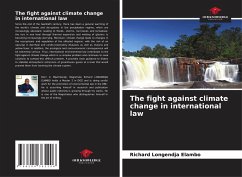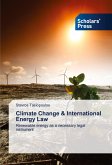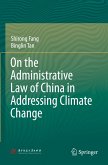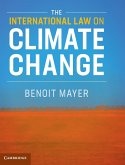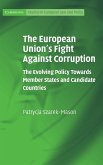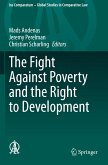Since the end of the twentieth century, there has been a general warming of the world's climate and disruptions in the precipitation regime, which are increasingly abundant, leading to floods, storms, hurricanes and tornadoes; the rise in sea level through thermal expansion and melting of glaciers is becoming increasingly worrying. Moreover, climate change leads to changes in the ecosystems and vegetation of the affected regions, with the risk of an upsurge in diarrheal and cardio-respiratory diseases as well as malaria and yellow fever. In addition, the ecological and socio-economic consequences will be extremely serious. Thus, international environmental law contributes to the fight against climate change which is a complex problem and continues to seek solutions to combat this difficult problem. It provides clear guidance to States to stabilize atmospheric emissions of greenhouse gases at a level that would prevent them from harming the climate system.
Bitte wählen Sie Ihr Anliegen aus.
Rechnungen
Retourenschein anfordern
Bestellstatus
Storno

